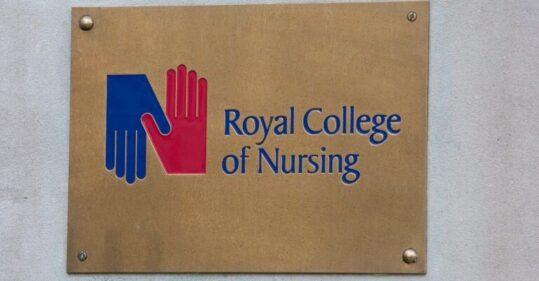RCN involved in GP contract advisory group ‘for first time ever’

Increased engagement from general practice nurses (GPNs) on pay and conditions has given the Royal College of Nursing (RCN) ‘more opportunities’ to engage with the British Medical Association (BMA) and the government on these issues.
In a webinar focused on GPN pay, the RCN confirmed that it has ‘for the first time ever’ become involved in an expert advisory group for the GP contract for 2024/25.
RCN professional lead for primary care Heather Randle noted that while this was ‘just a one-year contract and there is not going to be many changes’, it was ‘a start’ for the college and the profession.
‘We’re now in that conversation around what the GP contract should look like and the future of it,’ she told members at the webinar last week.
Holding an NHS GP contract is a requirement for GPs to run an NHS commissioned general practice.
Related Article: New preceptorship package for social care nurses
The contract sets out mandatory requirements and services for all general practices, as well as making provisions for other types of services they may choose to provide.
Every year a general medical services (GMS) contract is negotiated nationally between NHS England and the BMA’s England General Practitioners Committee. This is the national standard GP contract to deliver core medical services.
The RCN has recently been working more closely with the BMA, and in October they jointly pledged to ensure ‘fully funded fairer terms’ for nurses working in general practice.
Ms Randle said she understood there would be a government survey coming out ‘around the quality outcomes framework and the payments that are received in general practice’ in December.
She said the college will be responding on ‘where we think the gaps are’.
‘This is about us starting to engage with that process, which is really good,’ added Ms Randle.
Meanwhile, RCN director for England Patricia Marquis recognised the increased engagement from the GPN workforce regarding their employment conditions.
‘Lots of you are starting to engage around this in a way that we haven’t necessarily seen before,’ she told the webinar.
Related Article: Applications to study nursing in England at ‘new low’
‘And that starts to give us more opportunities to be able to work initially with the BMA, but also with pushing at both governments and the NHS; and really start to recognise and understand that nurses are not going to just accept the current status quo in the way that for many years, sadly, we’ve been in no position to challenge.’
She added: ‘So, I think absolutely now is the time for us to start to really harness the power that you all together have got.’
This enables the college to ‘start to really push with both the BMA and the government to start to say, “look, it’s not going to work anymore, you can’t just continue this model or indeed, not funding general practice well enough to be able to pay nurses and others to be able to work there”’, she added.
The webinar was held following ongoing concerns around GPNs in England missing out on a 6% pay increase they were promised by the government earlier this year, because of the complex funding formula used.
Earlier this week, the college announced it would be formally writing to the new primary care minister Dame Andrea Leadsom for an ‘urgent’ update on the situation.
The RCN has also launched a survey for GPNs not receiving the full 6% uplift to help build its case.
Related Article: Paul Rees appointed as permanent NMC chief executive and registrar
Ms Marquis said the college wanted to ‘find a solution’ that meant in the long-term such discrepancies around pay did not occur.
She recognised this would ‘take us a while’ and that there was ‘no appetite centrally to do it’, but urged all GPNs to support the cause and ‘speak out’.
In addition, she said she wanted to be ‘really clear’ that addressing GPN pay was a ‘major piece of work for us’.

See how our symptom tool can help you make better sense of patient presentations
Click here to search a symptom




